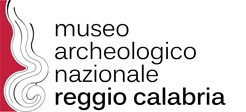“Medea in the Twentieth Century: Alvaro and Pasolini”, Conference of the philologist Paola Radici Colace
The third appointment for the Summer Nights at MArRC with the “… rEstate al MArRC!” Program on the terrace is on Thursday, July 5th at 9.00 pm for the Conference of Paola Radici Colace, professor of classical Philology at the University of Messina, on the topic “Medea in the Twentieth Century: Alvaro and Pasolini”.
The meeting is promoted by the National Archaeological Museum of Reggio Calabria in collaboration with the International Center of Writers of Calabria, as part of the cycle on the “Ancient Theater. From ancient to modern, history and variation of classical theater in the Western tradition”. Speakers: the director of the Museum, Carmelo Malacrino, and the president of CIS, Loreley Rosita Borruto.
Medea is a complex figure of Greek myth and ancient theater, whose reading in contemporary fiction and theater highlights aspects of her psychological and existential drama. «The novelty of these modern re-elaborations consists in concentrating the attention on the figure of Medea as foreign and exiled, excluded and rejected by the community of Corinth and protagonist of a psychological path that tends to lighten the burden of her guilt, calling in because of external, unavoidable and decisive reasons “, Radici Colace declares to present the meeting. In the “Long Night of Medea” by Corrado Alvaro is represented “a woman who pays on a personal level, because of the defeat of passion by reason”, while Pier Paolo Pasolini’s “Medea” is “the battleground in which they contrast the aggressive, conquering and winning but devoid of values Modernity and the pre-industrial vision, with its traditional values and the primitive face, but full of meanings ».

